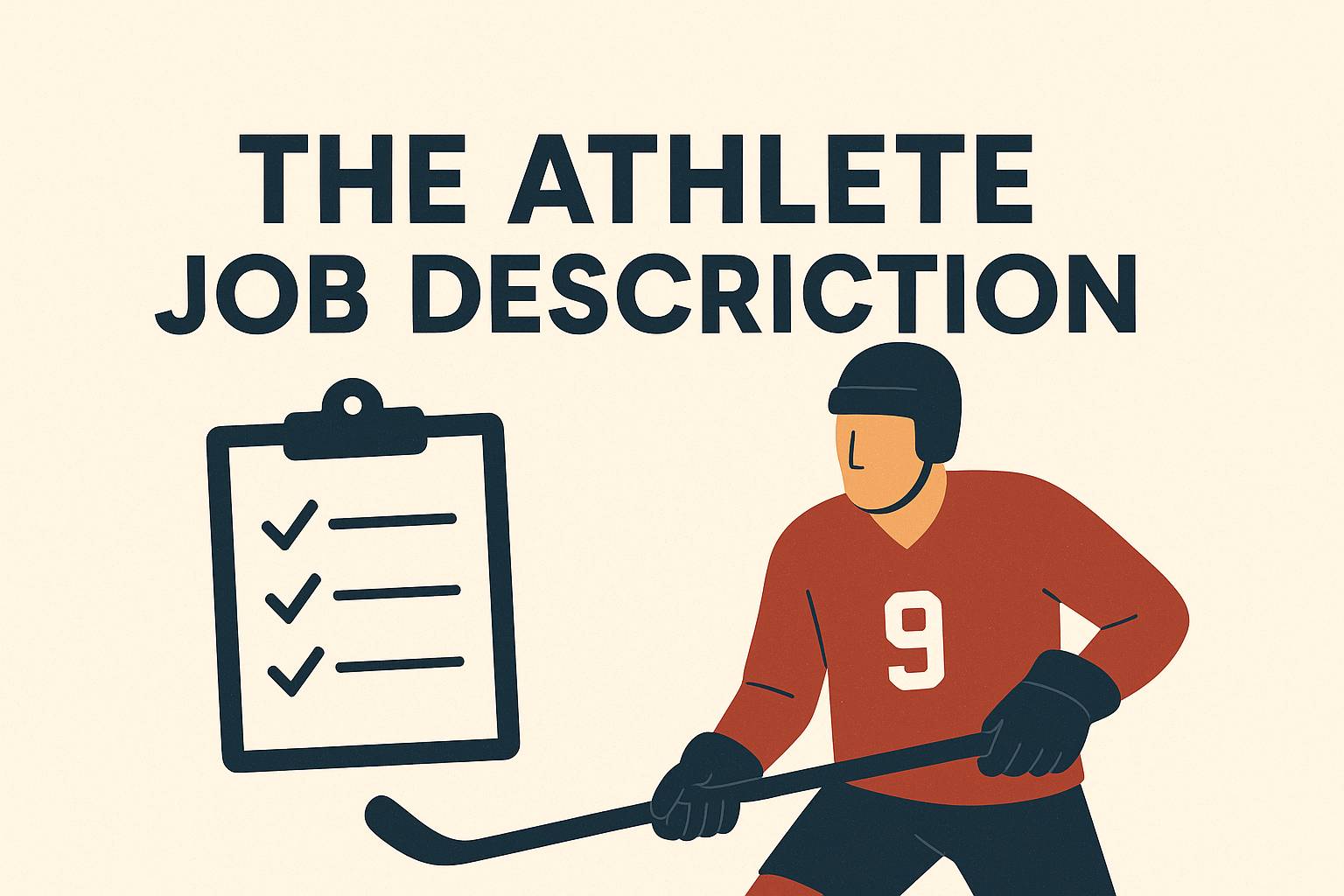|
“Champions keep playing until they get it right.”
— Billie Jean King Behind every confident, resilient, high-performing athlete is a system, a structure of habits, routines, mindsets, and support. And at the heart of that system? Often, it’s you, the parent. High-performance athletes aren’t just playing a game, they’re doing a job. A demanding one that requires physical preparation, mental focus, emotional regulation, recovery, discipline, and leadership. But unlike a regular job, they don’t clock in and out. The job is lived, on the field, in the locker room, the gym, at the dinner table, at school, and in how they sleep, eat, and think. When parents understand the athlete’s job description, they can better support their athlete’s mental performance, mental health, and long-term development. ________________ The High-Performance Athlete Job: More Than Just Showing UpA true high-performance athlete does more than attend practice or chase outcomes. Their job includes:
This structure doesn’t just build performance, it protects it by creating clarity, routine, and a sense of control. According to Self-Determination Theory (Deci & Ryan, 2000), athletes thrive when they feel:
A job description helps athletes feel all three. And parents play a critical role in reinforcing that support. ________________ How Parents Can Support Their Athlete’s “Job” (Without Doing the Work for Them)High performers don’t need rescuing. They need scaffolding, a structure that helps them hold it all together. Here’s how to provide it: 1. Understand Their WorkloadAsk your athlete:
Create a shared understanding of their weekly contact hours (physical, mental, school, social). This helps reduce burnout and keeps things in perspective. 2. Normalize the Invisible WorkTalk about the “invisible” parts of their role such as sleep, hydration, nutrition, mental prep. Show interest and ask questions like:
When you show value for these parts of their job, they will too. 3. Be a Calm, Consistent AnchorYour tone, questions, and presence set the emotional climate at home. Athletes under pressure need a place that is predictable, safe, and supportive. Try:
4. Co-Create a “Home Support System”Make things easier to stick to:
You’re not doing the job for them, you’re protecting the conditions they need to do it well. ________________
Action Step of The WeekSit down with your athlete and talk openly with them about their “job description.”
Ask: “Where can I be most helpful in supporting you with this job?” ________________
Resource of the WeekPodcast: Raising Competitors by TrueSport – Short, practical episodes on parenting high-performance youth athletes and supporting mental health. ________________
Final ReflectionBeing the parent of a high-performance athlete isn’t easy, but it’s incredibly meaningful. You’re not the coach. You’re not the teammate. When you help your athlete define their job and support them in doing it, without micromanaging or taking it over, you’re giving them one of the greatest competitive edges of all: the ability to succeed without losing themselves in the process. ________________ Self-Reflective Question for ParentsDo I truly understand the daily demands of my athlete’s role, and how am I helping them carry it, not control it?
|
Behind Every Great Athlete Is a Supportive System: How Parents Can Help Athletes Do Their Job




